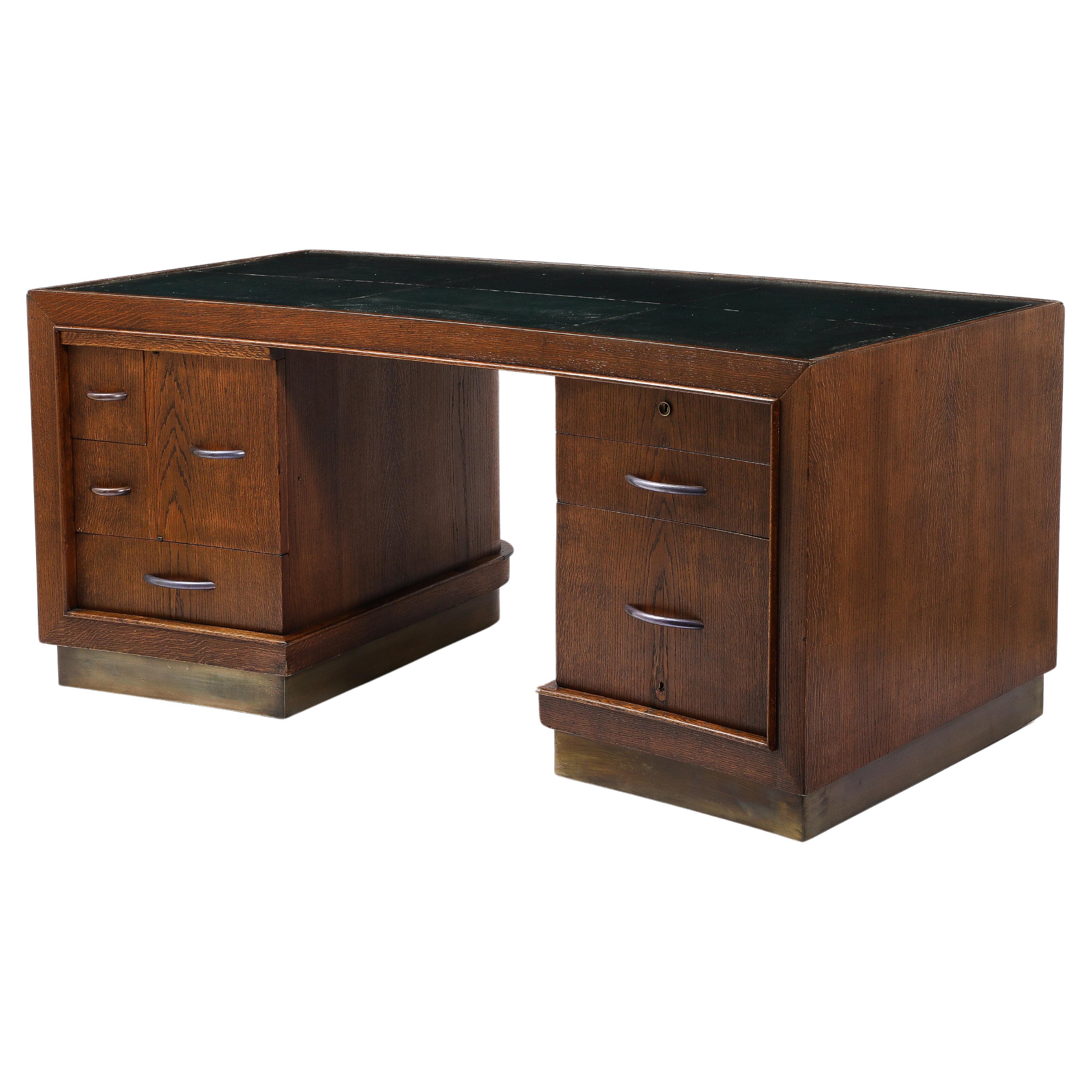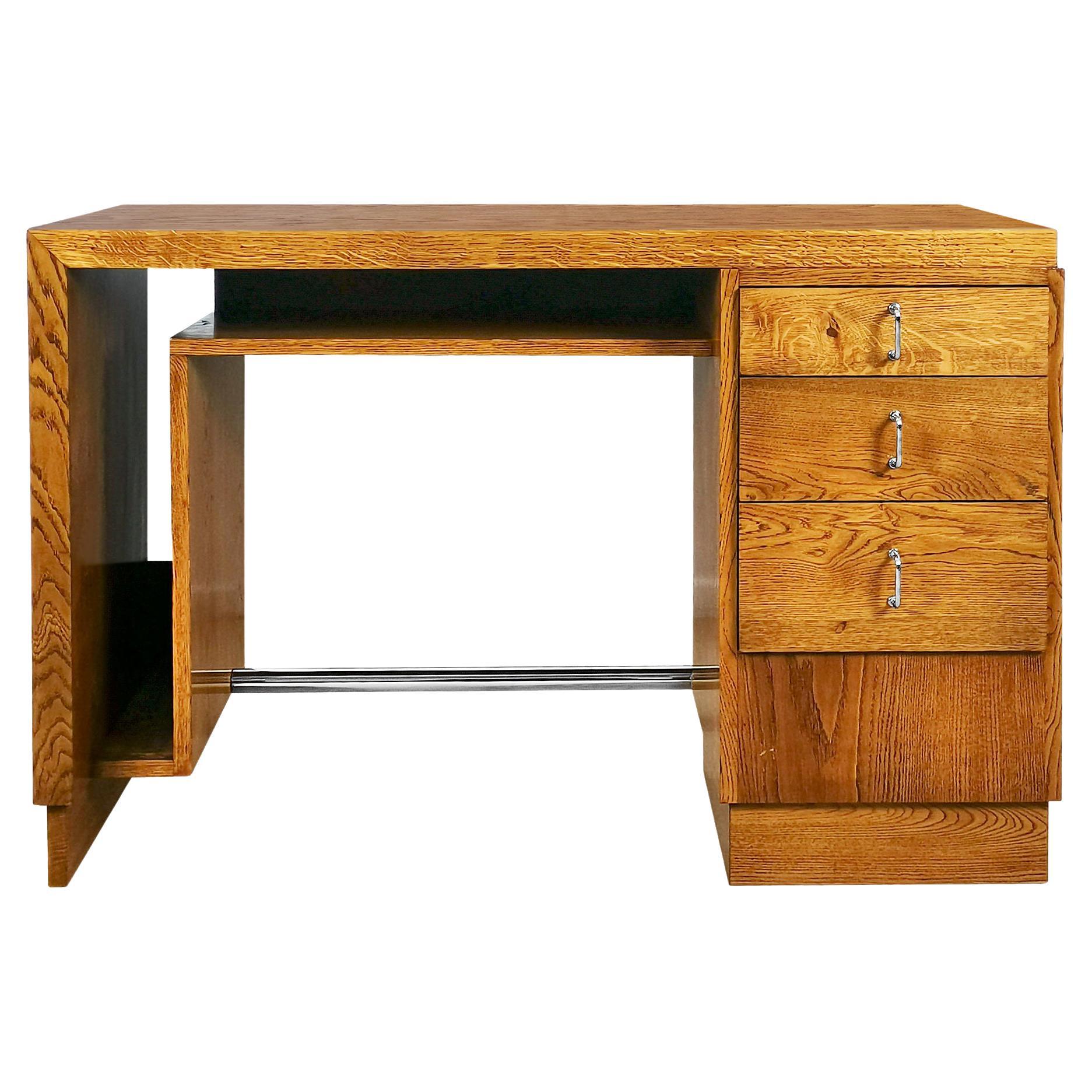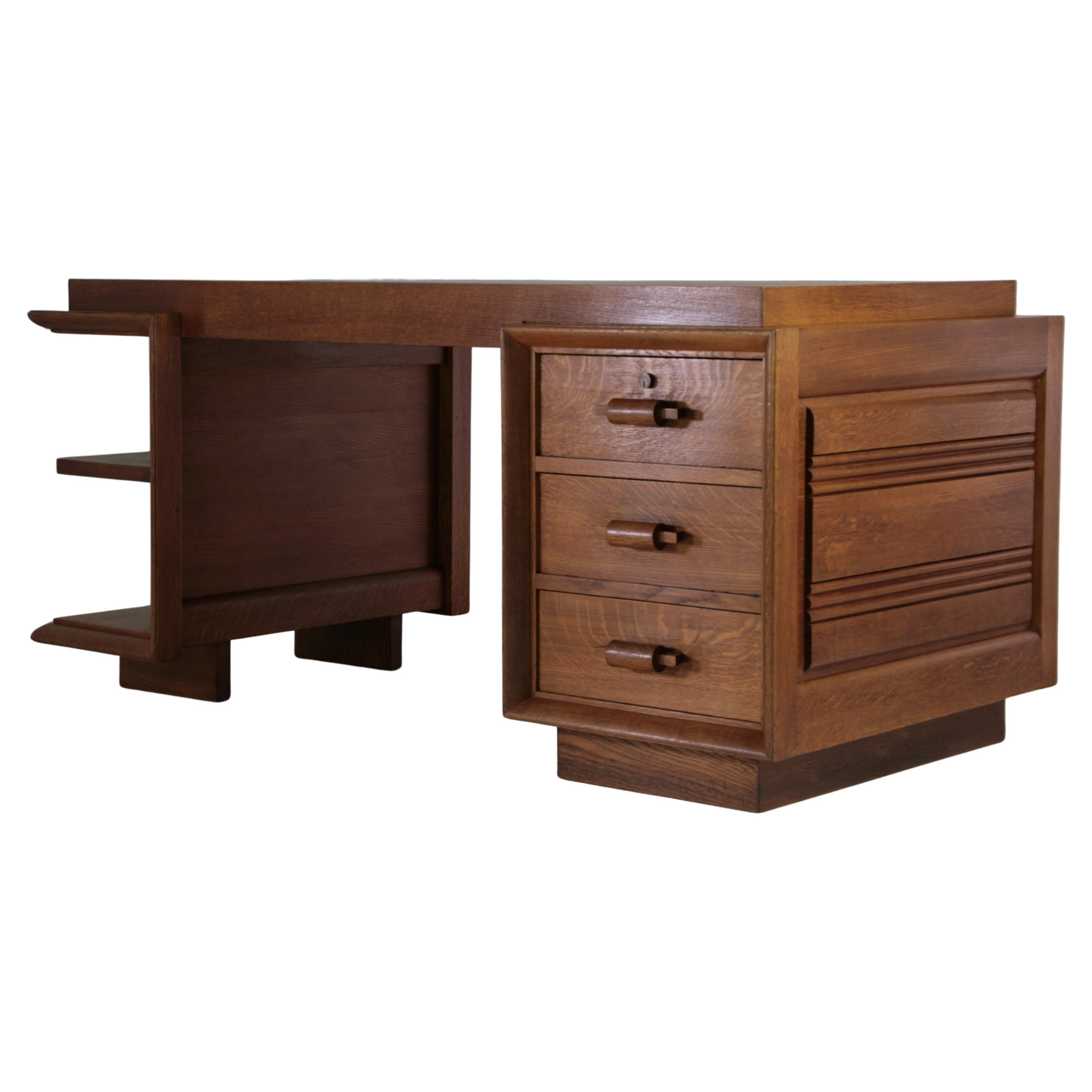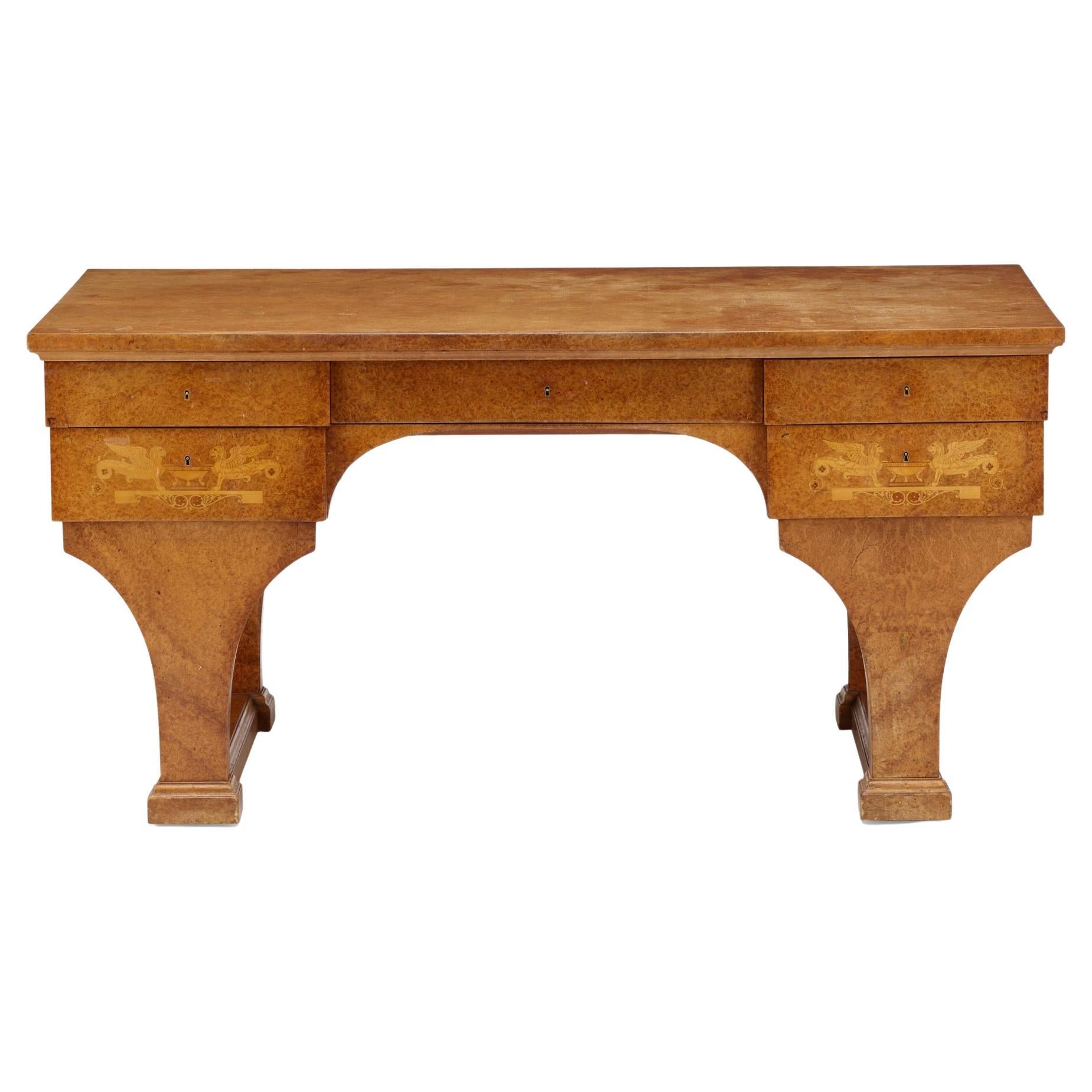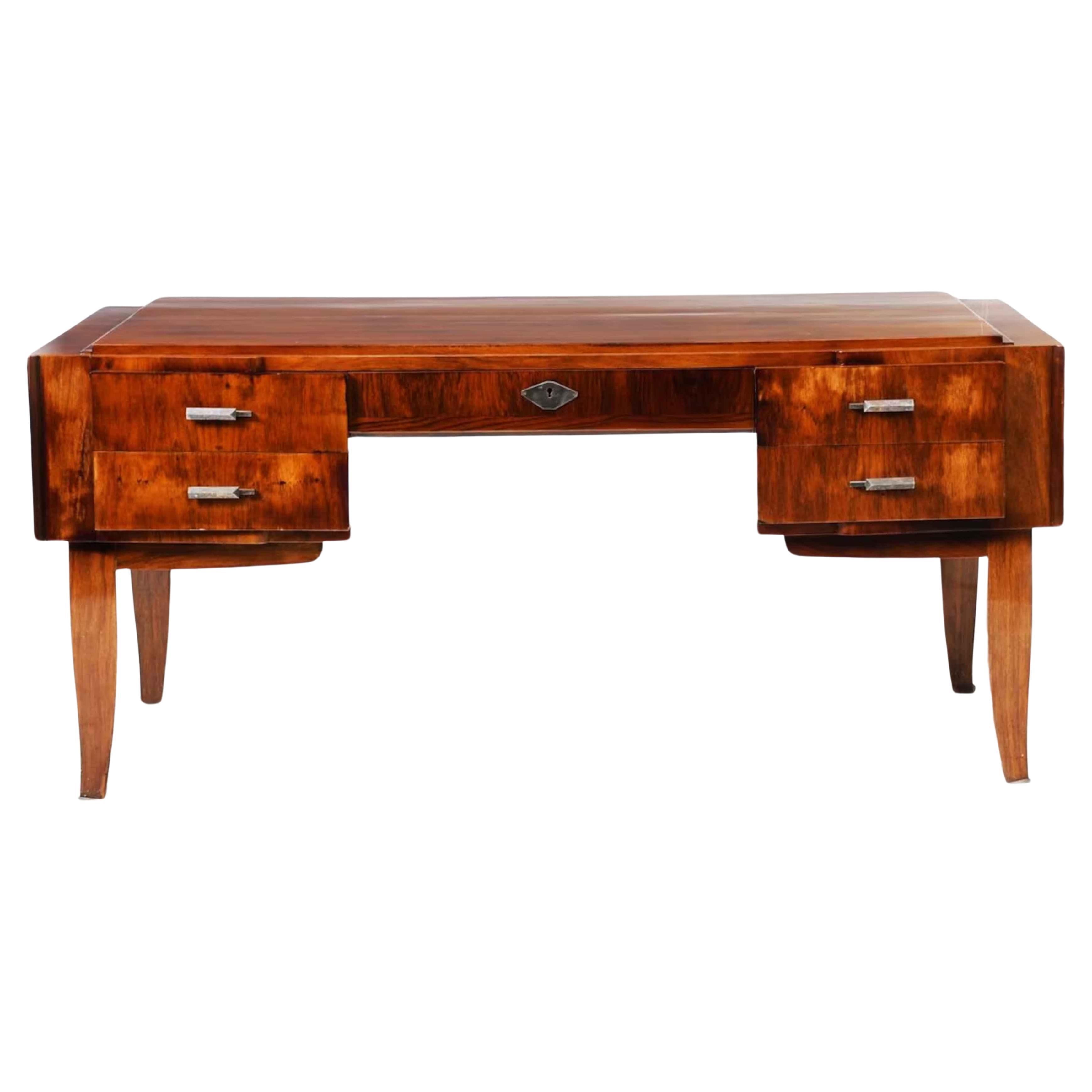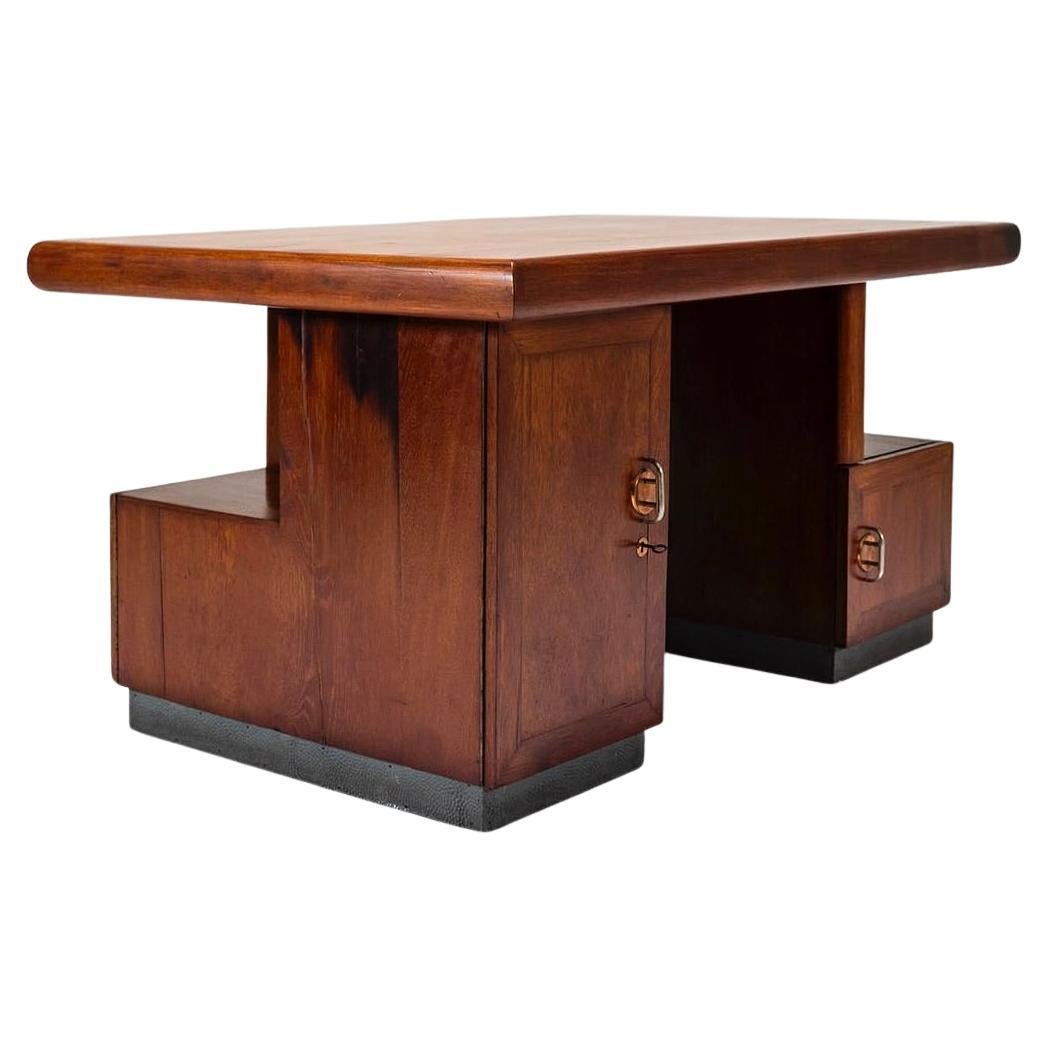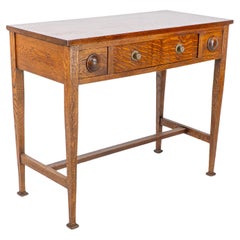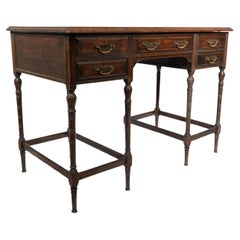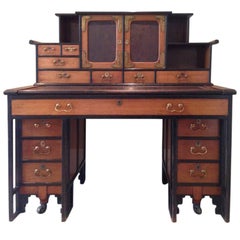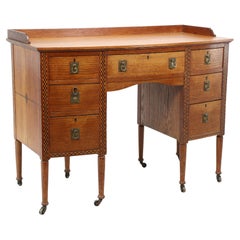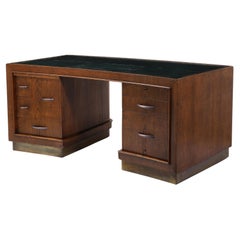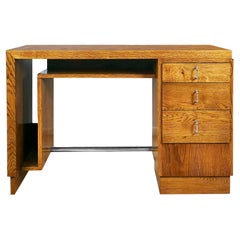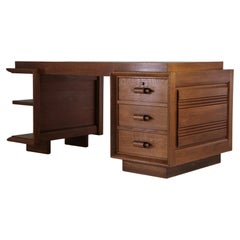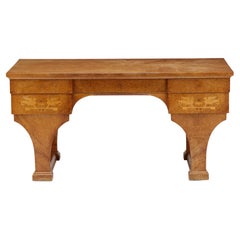Items Similar to Frank Brangwyn. A rare desk originally designed for the 1931 Pollard exhibition
Want more images or videos?
Request additional images or videos from the seller
1 of 20
Frank Brangwyn. A rare desk originally designed for the 1931 Pollard exhibition
$33,060.22
£24,000
€28,291.64
CA$45,462.76
A$50,558.99
CHF 26,465.30
MX$616,758.19
NOK 332,546.12
SEK 312,802.55
DKK 211,178.75
About the Item
Frank Brangwyn. E Pollard and Co.
A rare desk originally designed for the 1931 Pollard Exhibition where it can be seen in a room setting in the original photographs from 1931. See images.
This desk was on display at the Scarborough Museums Trust's exhibition 'Brangwyn 1867-1956: Man of the People', in 2016. Co-curated by Dr Libby Horner, she focuses on prominent themes within the collection of 'the lives of man, at work, at rest and in times of distress'.
Born in Bruges and raised in London, Brangwyn grew up in a bubble of creativity. His father was a renowned Architect, winner of a silver medal in the Paris Exhibition, and his two siblings thrived in the field of Interior Design out in the US.
Brangwyn is not the result of an extensive Arts education but in fact a young man whom in the early stages of his artist life was exposed to three immensely inspiring and engaging designers of the time- A H Mackmurdo, William Morris, and Siegfried Bing. Their discovery of Brangwyn back in 1882, lead to collaborative and group work at the Century Guild, where shortly after he was taken under the wing of Morris to practice in his workshops at Queen Square on Flemish tapestries.
It didn’t go unnoticed that there were two fundamental themes that echoed throughout this experiential learning; the value of drawing from nature, and hence the value of a work ethic.
A notable stepping stone in Brangwyn’s professional practice and platform to the public, was the mural he was commissioned to execute at the age of 28 in 1895 at Galeries L’Art Nouveau in Paris, owned by supporter and mentor Bing. From this, a confident designer flourished. His designs broadened and began materialising in a range of mediums, from textiles through to glass and jewellery, to furniture for floors and decorative pieces for walls.
Only a year later, Brangwyn married a lady named Lucy Ray, whom was to be his partner managing Temple Lodge, a Georgian house in Hammersmith, and later The Jointure House in Ditchling.
During his travels through English fishing villages and communities, up until 1913, he was able to mature his collection of drawing material by experiencing the world in pieces; France, Italy, Morocco and an array more.
By the end of Brangwyn’s life, his extensive collection consisted of more than 20 mural commissions, 685 paintings, of which a further 265 are not dated, not forgetting etchings, lithographs, and wood engravings, exceeding 1,000.
- Creator:Frank Brangwyn (Designer),E. Pollard & Co (Cabinetmaker)
- Dimensions:Height: 31.1 in (79 cm)Width: 42.9 in (108.97 cm)Depth: 24 in (60.96 cm)
- Style:Art Deco (Of the Period)
- Materials and Techniques:
- Place of Origin:
- Period:
- Date of Manufacture:1931
- Condition:
- Seller Location:London, GB
- Reference Number:Seller: PV0035581stDibs: LU2243312593821
About the Seller
5.0
Gold Seller
Premium sellers maintaining a 4.3+ rating and 24-hour response times
Established in 1989
1stDibs seller since 2016
296 sales on 1stDibs
Typical response time: <1 hour
- ShippingRetrieving quote...Shipping from: London, United Kingdom
- Return Policy
Authenticity Guarantee
In the unlikely event there’s an issue with an item’s authenticity, contact us within 1 year for a full refund. DetailsMoney-Back Guarantee
If your item is not as described, is damaged in transit, or does not arrive, contact us within 7 days for a full refund. Details24-Hour Cancellation
You have a 24-hour grace period in which to reconsider your purchase, with no questions asked.Vetted Professional Sellers
Our world-class sellers must adhere to strict standards for service and quality, maintaining the integrity of our listings.Price-Match Guarantee
If you find that a seller listed the same item for a lower price elsewhere, we’ll match it.Trusted Global Delivery
Our best-in-class carrier network provides specialized shipping options worldwide, including custom delivery.More From This Seller
View AllShapland and Petter. An oak Arts and Crafts hall/side table or small desk
By Shapland & Petter
Located in London, GB
Shapland and Petter. An oak Arts and Crafts hall/side table or small desk with central drawer flanked by decorative roundels. Floor to bottom of desk: 59 cm
Category
Antique Early 1900s English Arts and Crafts Desks
Materials
Oak
E W Godwin attr for Collinson & Lock. An Aesthetic Movement walnut writing table
By Collinson & Lock, Edward William Godwin
Located in London, GB
Collinson and Lock. Attributed to E W Godwin. An exceptional quality walnut writing table with five upper drawers each with swan neck handles standing on eight finely turned legs, ea...
Category
Antique 1880s English Aesthetic Movement Desks
Materials
Walnut
Rare Walnut Desk in the Anglo-Japanese Style Designed by Thomas Jeckyll
By Charles Hindley & Sons, Thomas Jeckyll
Located in London, GB
A fine and rare walnut desk in the Anglo-Japanese style designed by Thomas Jeckyll and made by Charles Hindley and Sons.
“Thomas Jeckyll designed some of the earliest surviving furniture inspired in decoration if not in form- by interest in Japan” (Cooper p. 138).
As can be seen on the desk, the style and design details such as the ‘Key’ design, the Japanese style lacquered door panels, the cross hatching and circle design on the brass door brackets, all combine to create a unique example of Jeckyll’s Anglo-Japanese work.
The ‘Key’ design on the desk appears on many of Jeckyll’s designs including the cast iron grates and fenders made by Barnard, Bishop and Barnards and on furniture designed for ‘Alecco’ Ionides for his home at no1 Holland Park, London in circa 1875. The ‘Peacock’ dining...
Category
Antique Late 19th Century Anglo-Japanese Desks and Writing Tables
Materials
Walnut
Waring and Gillow. An Arts and Crafts bow fronted kneehole twin pedestal desk
By Waring & Gillow
Located in London, GB
Waring and Gillows attributed. An Arts and Crafts bow fronted kneehole twin pedestal desk with chequered inlay with quality hand hammered brass handles, turned legs on original castors.
Category
Antique Early 1900s English Arts and Crafts Desks
Materials
Brass
George Walton. Arts & Crafts Walnut Desk with Secret Drawers & Heart Escutcheons
By George Walton
Located in London, GB
George Walton. A rare Arts and Crafts walnut desk almost identical to the desk Walton designed in 1898 for Sidney Leetham for the morning room in Elm Bank, a major interior commission in York, England.
This desk is a complex hybrid design. The overhanging top with central arched cupboard...
Category
Antique Late 19th Century English Arts and Crafts Desks and Writing Tables
Materials
Walnut
G M Ellwood for J S Henry. An Arts & Crafts oak writing desk
By George Montague Ellwood
Located in London, GB
George Montague Ellwood (1875-1955) for J.S. Henry
An oak writing desk with sloping pen compartment just above the writing area flanked by stylised inlaid details of a pair of quills...
Category
Early 20th Century English Arts and Crafts Desks and Writing Tables
Materials
Copper
You May Also Like
Jacques Adnet President Oak Desk, France 1940's
By Jacques Adnet
Located in New York, NY
“President” Oak Desk on drawer pedestals and brass plinth, copper handles with original British green leather top, details abound in this piece such as the guest facing end with its ...
Category
Early 20th Century French Art Deco Desks and Writing Tables
Materials
Brass
Small Art Deco Cubist Desk in Solid Oak The Style Francisque Chaleyssin- France
By Francisque Chaleyssin
Located in Girona, Girona
Small Art Deco cubist and double sided desk, solid oak and oak plywood, French polish. Three drawers and a shelve under the top, nickel plated steel tube and handles.
In the style of...
Category
Vintage 1930s French Art Deco Desks and Writing Tables
Materials
Steel, Nickel
Art Deco oak desk by Charles Dudouyt, France 1940s
By Charles Dudouyt
Located in GRENOBLE, FR
This oak Art Deco desk, designed by French designer Charles Dudouyt, embodies the elegance of the 1940s Art Deco movement. Crafted from solid oak, it features a solid construction an...
Category
Mid-20th Century French Desks and Writing Tables
Materials
Oak
Art Deco Desk by Ernest Boiceau
By Ernest Boiceau
Located in New York, NY
This Boiceau desk bears his stamp, and was entirely veneered in amboyna, an exotic burlwood named for Ambon, the Indonesian island where it was harvested. The naturally squiggling patterning of the veneer provides an overall surface decoration. The top alone has no fewer than 60 small book-matched squares of it – ten across and six deep – creating a kaleidoscopic effect in subtle monochrome. Applied decoration is minimal. It consists of two inlaid pairs of griffins in boxwood and purplewood facing off across braziers on both the front and the back of the desk, and blind-tooled Greek keys trimming white-leather-topped shelves that slide out to either side. These decorations introduce no color, and, in lying flush with the surface, leave the sleek form undisturbed. Boiceau even eliminated drawer pulls, necessitating a lock and key for each drawer.
Born in Lausanne in 1881, Boiceau descended from French Huguenots who had settled in Switzerland. Prominent as bankers, lawyers, businessmen, and diplomats, the Boiceaus were a cosmopolitan family. Ernest studied painting in Munich, and then painting and architecture in Paris at the École des Beaux-Arts. In 1900 he embarked on a ten-year European sojourn, painting landscapes and portraits along the way. In 1910 he resettled in Paris, became interested in textiles, and established an embroidery workshop that catered to the stage and haute couture. Among his clients were the Folies Bergères, the Comédie-Française, and the Paris Opéra, and the fashion houses of Worth and Molyneux. He also made embroidered table linens, wall hangings, and upholstery fabrics. In a 1913, at an embroidery exhibition in Paris at the Musée Galliera, he presented a boudoir in collaboration with curtains, upholstery fabrics, and a tapestry, embroidered in modern abstract designs. In 1925 he launched a couture line, and branched out to design finely crafted objects and furniture made in rare woods, like ebony and Tasmanian oak...
Category
Vintage 1920s French Art Deco Desks
Materials
Bronze, Other
Exquisite 1920s French Art Deco Emile-Jacques Ruhlmann Style Rosewood Desk
By Émile-Jacques Ruhlmann
Located in Reading, Berkshire
1920s Art Deco Solid Rosewood Rectangular Desk With Original Fittings.
The Central Drawer is housed between two sets of drawers with Chrome finished feet, and handles.
This exquisite Streamline Moderne desk...
Category
Early 20th Century French Art Deco Desks and Writing Tables
Materials
Stainless Steel
Art Deco Writing Desk in Oak, Belgium 1930s
Located in Hellouw, NL
A striking and practical design, this 1930s Belgian Art Deco desk reflects the balance between craftsmanship and modernity. With a structured silhouette and refined material combinat...
Category
Vintage 1930s Belgian Art Deco Desks and Writing Tables
Materials
Oak
More Ways To Browse
Flemish Table
Lady Desk
Wood Partners Desk
Design Guild Glass
English Architects Table
Art Nouveau Writing Desk
William Writing Desk
Italian Horn Jewelry
Stone Writing Desk
Art Nouveau Marquetry Table
Art Nouveau Horn
French Partners Desk
English Partners Desk
Distressed Desks
Italian Marquetry Desk
English Partner Desk Writing Desk
Frank Co Jewellery
Vintage Step Up End Tables
